Why Switzerland hasn’t (yet) signed the treaty banning nuclear weapons
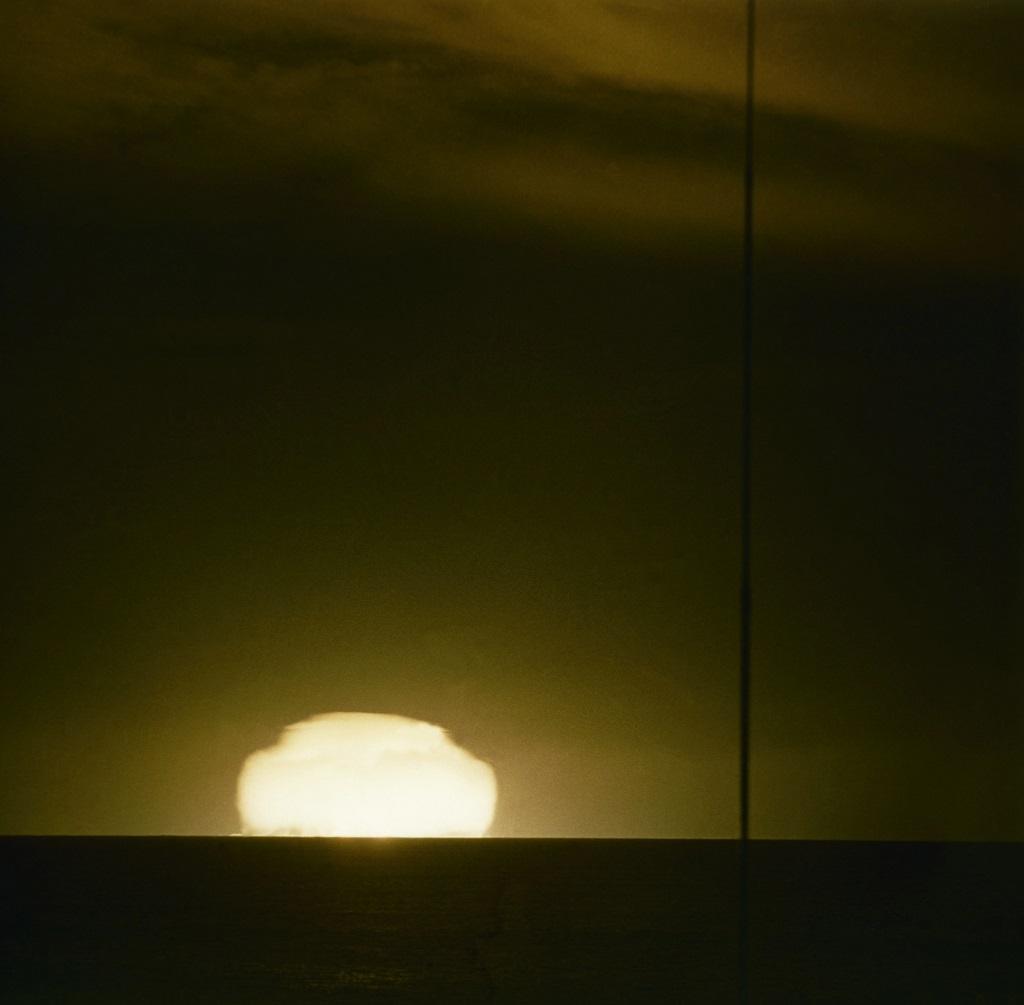
Switzerland has not yet signed or ratified the Nuclear Weapons Ban Treaty, adopted by the United Nations last summer. A decision is expected in the coming months. Meanwhile, pressure is building for the Swiss to adhere to the convention.
Despite participating in the preparatory work and negotiations of the treaty, Switzerland is one of several countries that has yet to sign the Treaty on the Prohibition of Nuclear Weapons. To date, 122 countries have adopted the treaty, 57 have signed and five have ratified it.
Campaigners argue that a failure to sign the treaty by Switzerland could have an impact on the country’s humanitarian credentials.
“If Switzerland does not sign this treaty, people will question our status as a champion of humanitarian rights and disarmament. I think [failure to sign] would undermine our credibility in this area,” Beatrice Fihn, head of the Geneva-based International Campaign to Abolish Nuclear Weapons (ICANExternal link) said during an interview on RTS recently. ICAN received the 2017 Nobel Peace Prize for its driving role in the adoption of the Treaty on the Prohibition of Nuclear Weapons which is designed to reinforce article 6 of the Treaty on the non-proliferation of Nuclear Weapons (TNPExternal link, 1968).
Will the Swiss parliament agree to its ratification? Both chambers are due to debate the question following a parliamentary question External linkfiled by Social Democrat Carlo Sommaruga, urging Bern to ratify the treaty as soon as possible.
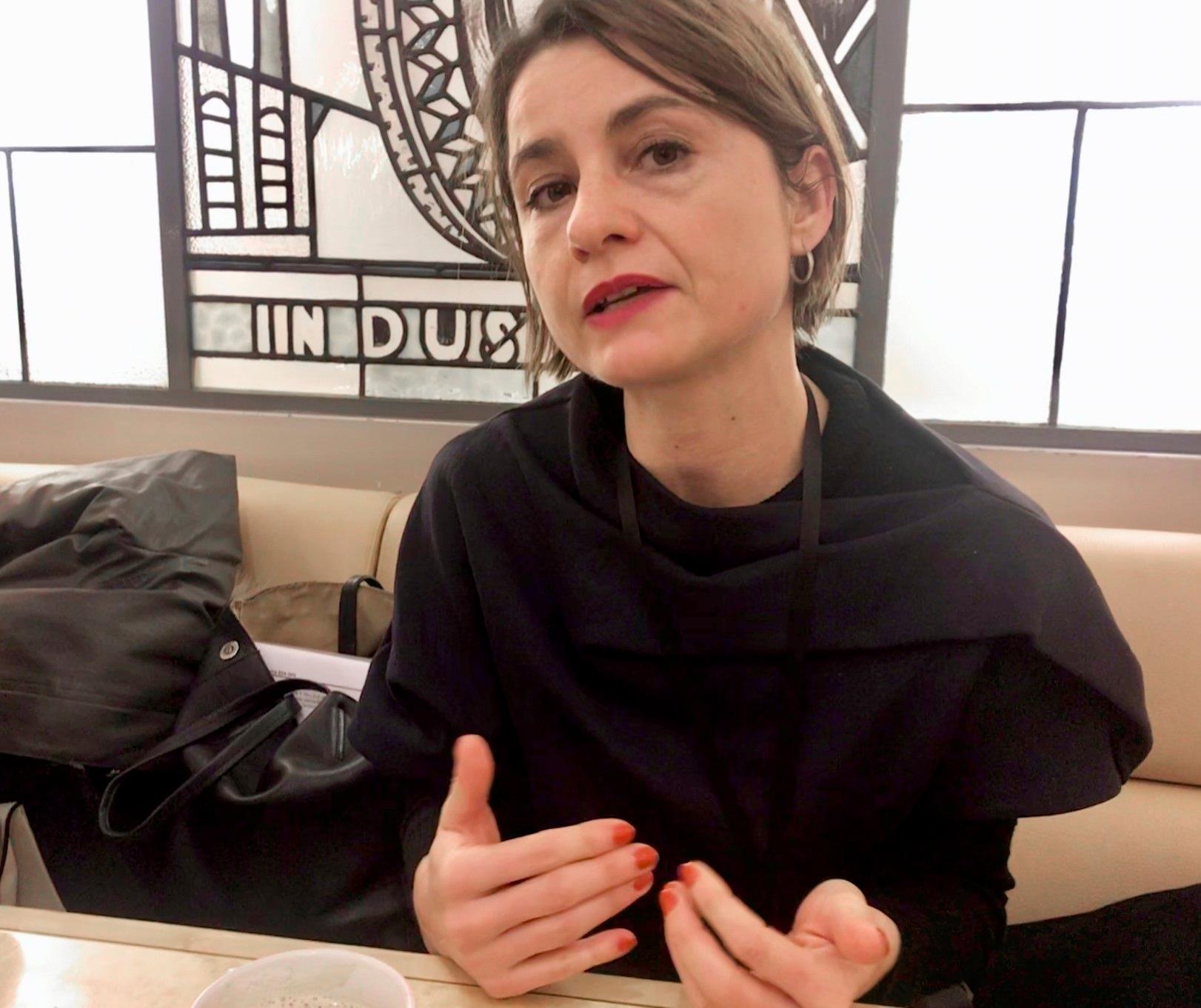
Doubts in Bern
Ambassador Sabrina Dallafior, who represents Switzerland at the United Nations Conference on Disarmament in Geneva, defends the cautious position taken by Bern in relation to the signing of the treaty. She says it may take several months before a decision is made to sign the treaty or not.
“An interdepartmental group in Bern is analysing the text to evaluate its coherence with the law and its articulation with respect to the Treaty on the non-Proliferation of Nuclear Weapons, and if prohibition is the best method for achieving nuclear disarmament,” says Dallafior.
“Switzerland participated in negotiations and the preparatory work of the treaty. We have approved the result of the negotiations on July 7 because Switzerland shares the desire for a world without nuclear weapons and supports the mention in the treaty of the catastrophic humanitarian impact of the use of a nuclear weapon.”
However, the government does not hide a certain scepticism towards this agreement: “We are not sure that this treaty will really be a step towards the elimination of nuclear weapons because the countries which have the atomic bomb are not a party to it, although we are convinced that they should be implicated, them and their allies. This treaty should not be against them but with them,” insists Dallafior.
For Fihn, this argument does not wash.
“Disarmament is something that happens over the long term. We are going to be able to ban and eliminate all the nuclear weapons. The only question to ask is the following: are we going to do it now or after they have been used,” Fihn asked in the same RTS interview.
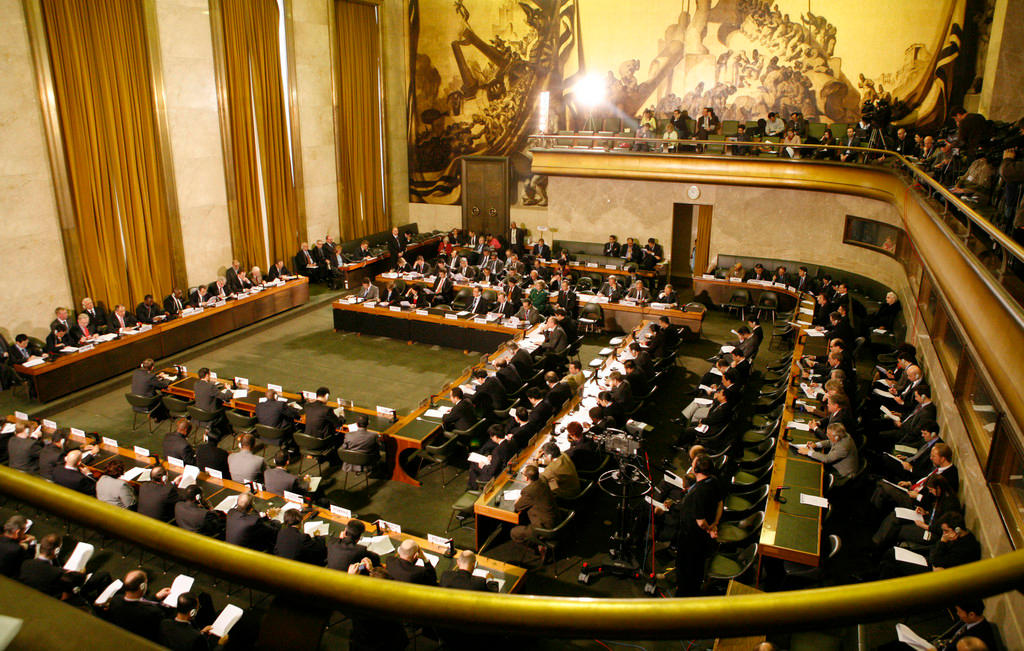
More
Can the Swiss help revitalise nuclear talks?
Difficult compromise
Former French diplomat and consultant with the Geneva Centre for Security Policy (GCPS) Marc Finaud emphasises the difficulties of the Swiss position: “Bern wants to examine all the implications of the treaty. That’s logical and legally justified. But what Switzerland hopes to do – bridge the divide between the opponents and partisans of the treaty – seems like trying to square the circle. You either agree to it or you don’t. There is practically no possible compromise.”
A specialist in the proliferation of weapons, Finaud says: “States that possess nuclear weapons and those protected by them under bilateral agreements still rely on them and don’t want them to be called illegal or illegitimate as this would call into question their security arrangement, but they are a minority. The vast majority of countries support the text. So it’s a growing trend and a norm that will exist and that’s where all countries will have to make a choice. Switzerland is confronted with this choice and it will be difficult to have a compromise solution.”
In fact, the treaty’s adoption is a recognition of the renewed threat posed by atomic bombs.
Multiple threats
The risk in North Korea is especially palpable in spite of the spectacular announcement of a possible meeting between US President Donald Trump and North Korean leader Kim Jong-un – who declare themselves ready to negotiate the denuclearisation of the Korean peninsula – that has reduced tensions to a certain extent.
But the fact remains that North Korea considers itself a new nuclear power, adding to the list of eight countries which hold nuclear weapons (France, Britain, Russia, United States, China, Israel, India and Pakistan).
The risk of proliferation is far from being side-lined, as much because the US president is still threatening to derail the international agreement on the Iranian nuclear programme, which, in fact, aims to prevent Tehran from becoming another nuclear power.
Risk to existing treaties
Dallafior points out another aspect of the threat posed by nuclear weapons.
“For several years, we have observed with great concern a trend towards armament rather than disarmament in the nuclear field,” she comments. “The quantity of nuclear weapons may have gone down but capacities have increased from a qualitative standpoint. Every nuclear state is carrying out modernization programmes.”
UN secretary general Antonio Guterres shares her concern. At a meeting of the Security Council on the non-proliferation of weapons on January 18, Guterres reminded attendees: “The concerns in the world about the subject of nuclear weapons have reached their highest levels since the Cold War. This in the context of increasing military budgets and over-accumulation of weapons”. A growth in the arms trade that was documented in the most recent report by the Stockholm International Peace Research Institute (SIPRI).
Guterres singled out Washington and Moscow, commenting that “the confidence regarding the nuclear issue and other issues between the United States and the Russian Federation continues to weaken. Vital measures to reduce strategic armaments taken during and after the Cold War are under threat. It appears that there is no longer an interest in negotiating new treaties to reduce the nuclear arsenal after the expiration of the Treaty on Measures for Further Reductions and Limitations of Strategic Offensive Arms, in 2021.”
Other avenues
Pertinent or not, the Treaty on the Prohibition of Nuclear Weapons is far from the only response to the nuclear threat. In Geneva, the Conference on Disarmament (CD) has agreed on a new working procedure [[to establish five working groups to explore common ground on so-called “core issues”] after 20 years of paralysis, leading some to hope that new ways of addressing the nuclear threat could be on the horizon if the willingness to advance demonstrated by its members continues.
“I note that this decision has been taken by consensus, which seemed impossible in relation to the CD. It concerns nuclear, but also other developments in the weapons industry. Disarmament as a whole,” comments Dallafior.
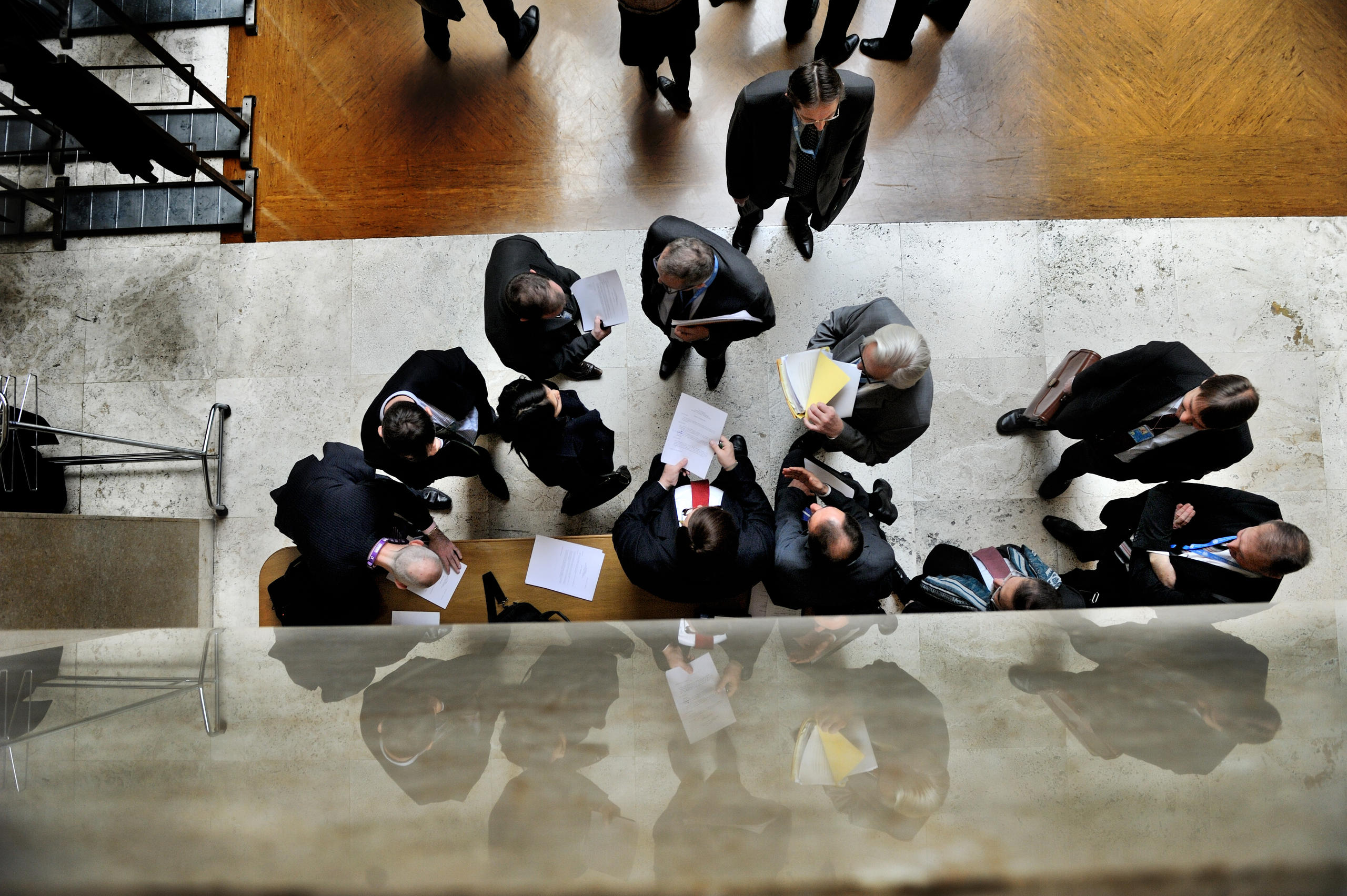
More
Geneva’s long-running diplomatic ballet
Translated from French by Sophie Douez

In compliance with the JTI standards
More: SWI swissinfo.ch certified by the Journalism Trust Initiative

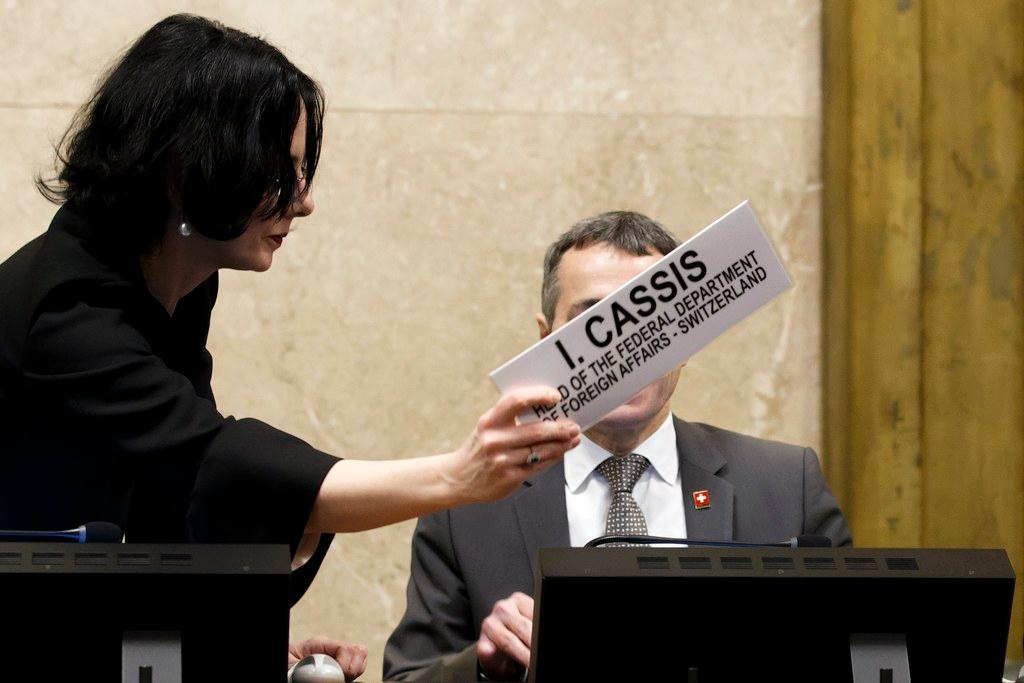
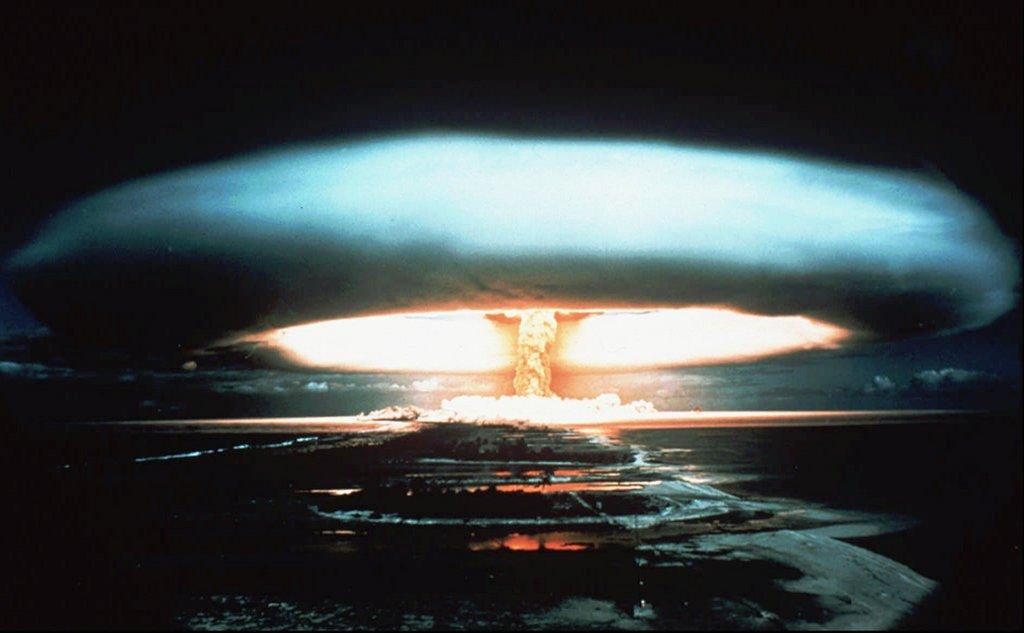
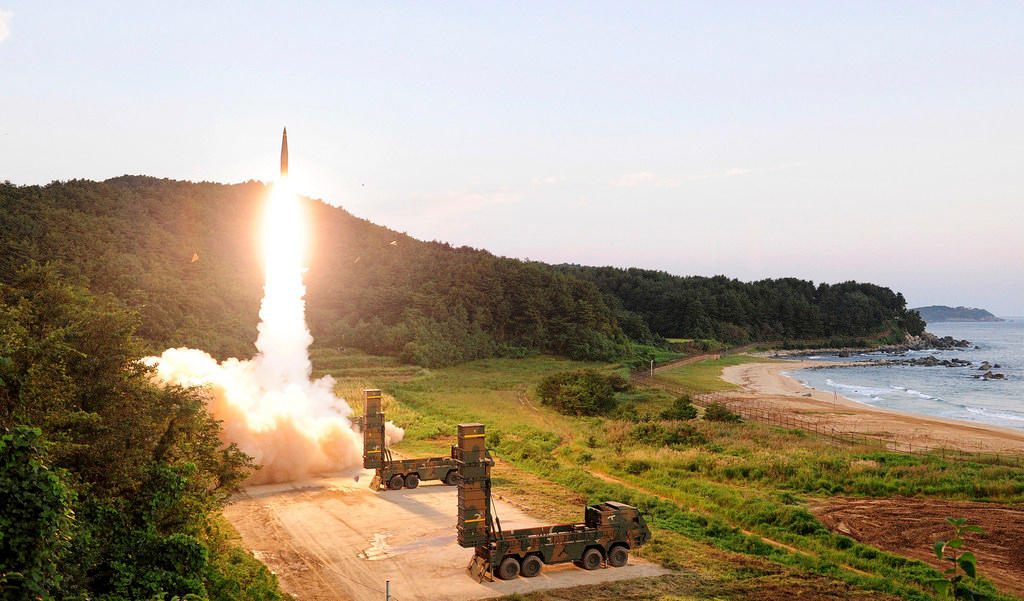
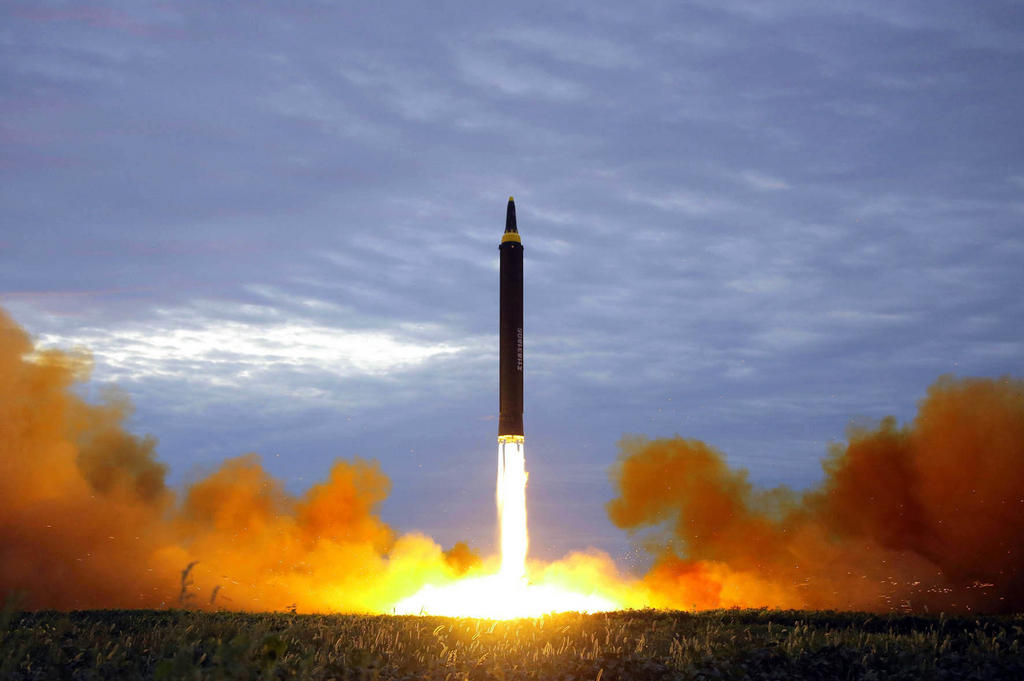
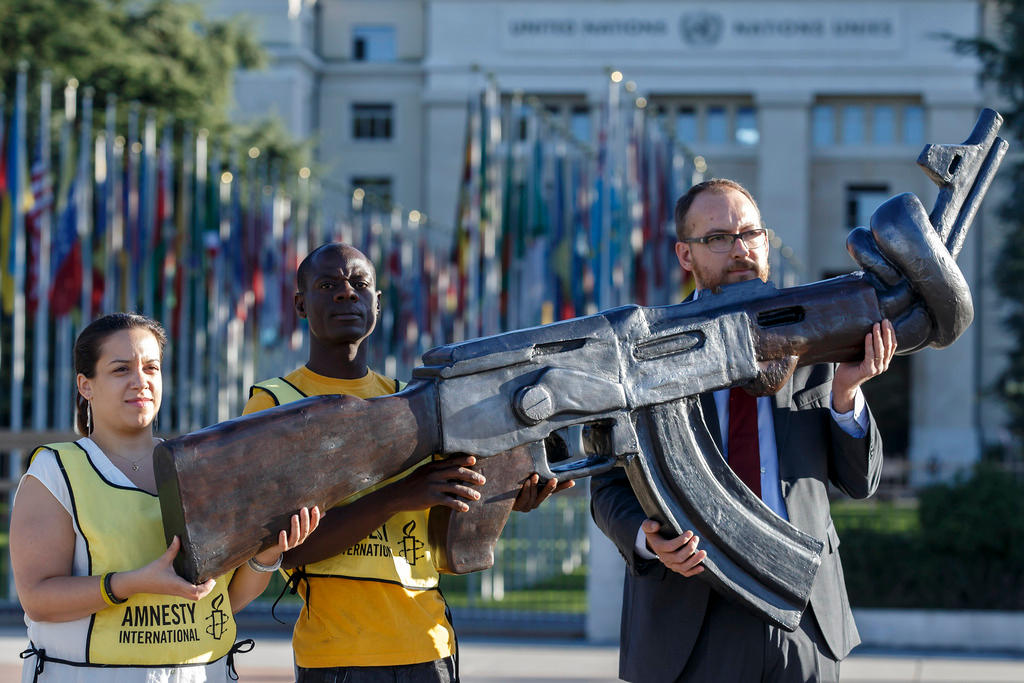
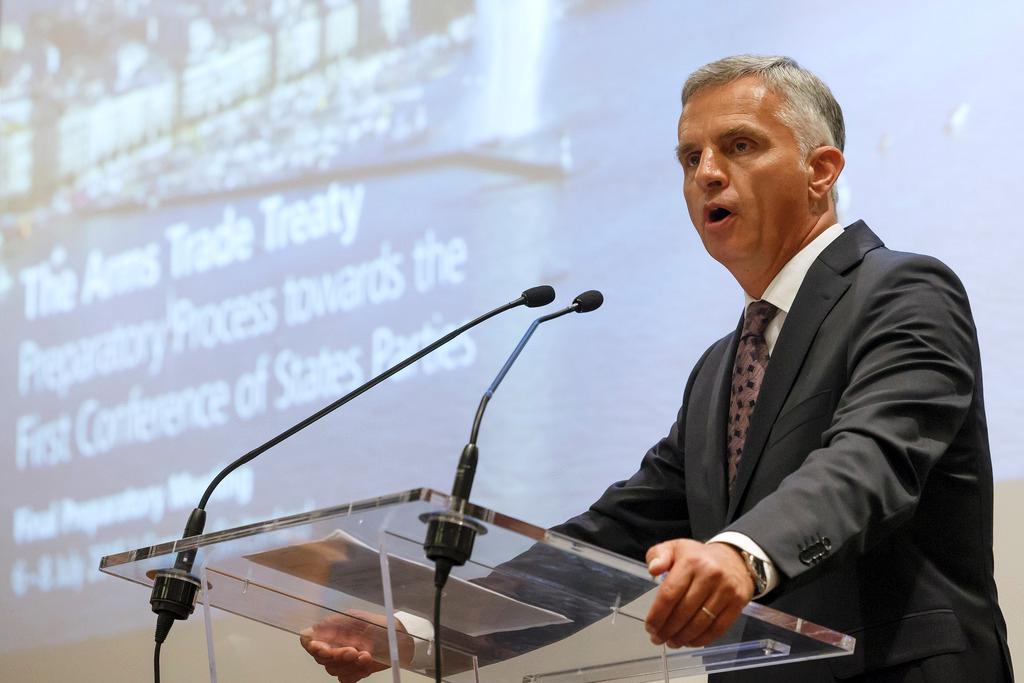
You can find an overview of ongoing debates with our journalists here. Please join us!
If you want to start a conversation about a topic raised in this article or want to report factual errors, email us at english@swissinfo.ch.